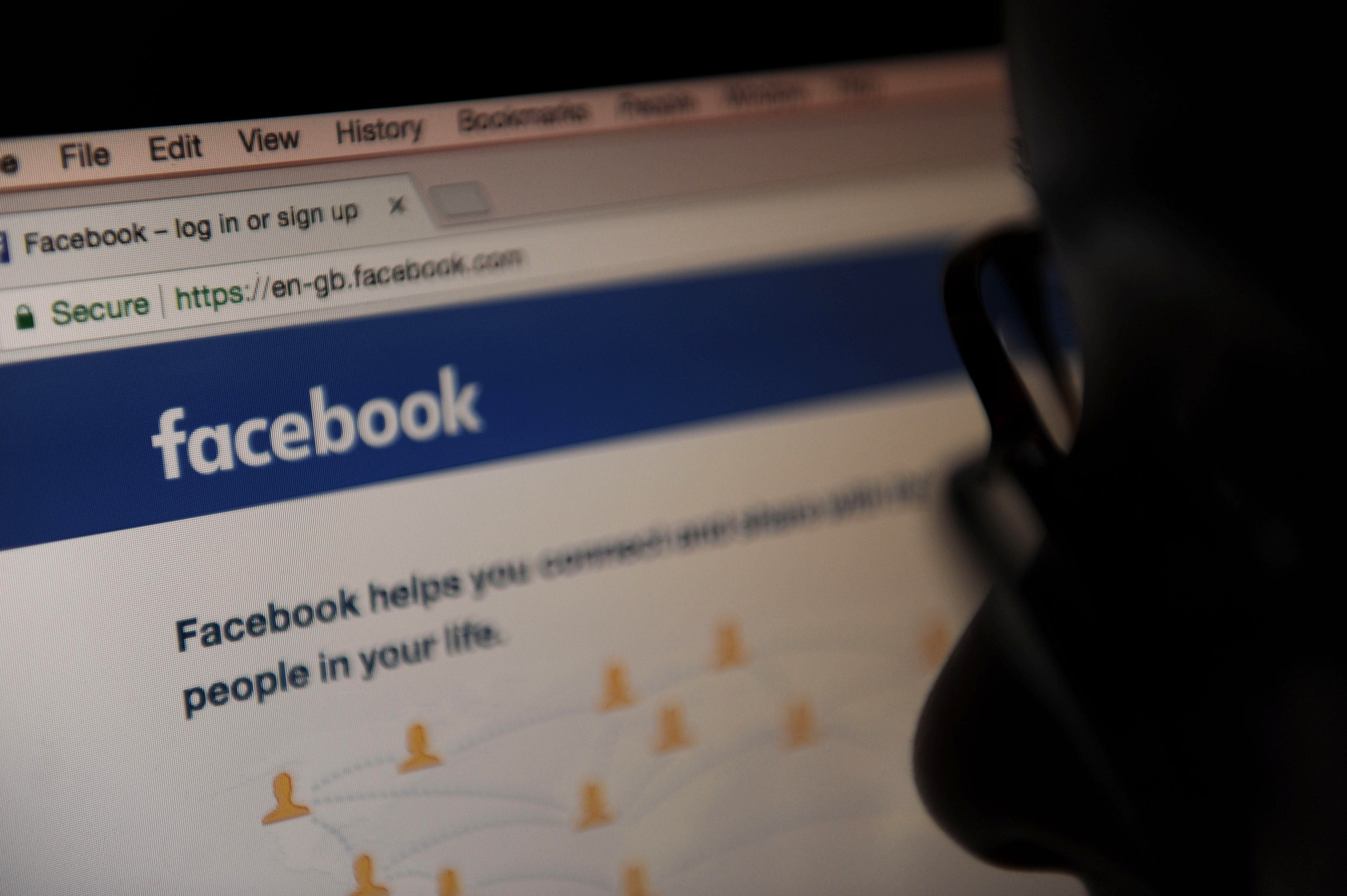You're not Facebook's customer. You're Facebook's product.
Of course your data got ripped off. That's the whole point.


A free daily email with the biggest news stories of the day – and the best features from TheWeek.com
You are now subscribed
Your newsletter sign-up was successful
Over the past several days, lawmakers and pundits have professed shock and anger over the actions of Trump campaign contractor Cambridge Analytica, a political consultancy, in scraping loads of personal data from Facebook. Many of these criticisms and attacks assume that the issue is unique and aberrant. But in reality, the exploitation and commercialization of personal data may well be the point of social media platforms.
Facebook needs to face tough questions. And indeed, Mark Zuckerberg and other Facebook executives will surely be called to testify before Congress as to what happened. In the meantime, they have suspended Cambridge Analytica's access to the platform and tightened their data access rules.
President Trump and his campaign obviously want to get maximum distance from their former consultants. But the Facebook scandal is hardly Team Trump's only reason for disavowing Cambridge Analytica. An undercover journalistic sting on CEO Alexander Nix and other executives revealed them bragging about the range of dirty tricks they could conduct for clients. Among the services reportedly on the menu, caught on tape, were setting oppo-research traps for politicos using Ukrainian hookers, enticing opponents into campaign-finance violations, and generating fake news. Even if Team Trump never made use of these more exotic services, and even if Cambridge Analytica execs were blowing smoke just to impress clients (or as they claimed, to find malevolent actors in politics), the consultants have become an obvious political liability.
The Week
Escape your echo chamber. Get the facts behind the news, plus analysis from multiple perspectives.

Sign up for The Week's Free Newsletters
From our morning news briefing to a weekly Good News Newsletter, get the best of The Week delivered directly to your inbox.
From our morning news briefing to a weekly Good News Newsletter, get the best of The Week delivered directly to your inbox.
But should anyone really be surprised that Facebook allowed access to the personal data of 50 million people to outside firms? After all, Facebook has been selling such access to advertisers for many years — and no one forces users to provide the data in the first place. Of all Cambridge Analytica's alleged sins, the data grabbing may be the least of all.
Facebook remains one of the most valuable companies in the world. Where, we might ask, is that value derived? After all, its 1.4 billion daily active users pay nothing for access to the platform, no matter how much they use it. It's free from top to bottom. The money comes from ads. And Facebook's entire advantage in selling ads is that because its user base is so big, it can promise advertisers the ability to target virtually any demographic group it wishes. (Want millennial homeowners in Kansas? Facebook surely has them. Retirees in Japan? It has them, too.)
Facebook sells ads based on what it knows about you. That's its core business. To think otherwise is foolish.
The data is available to third parties, too. In 2007, Zuckerberg opened the Facebook platform to outside developers, who would then write their own applications to interact with users and gain access to their data on a wide scale. And thanks to the network power of friending, these outside parties can sometimes get data not just on those who use the applications, but also on their friends, too. That's a powerful force multiplier that's built into the Facebook structure. This is how Cambridge Analytica leveraged 272,000 app users into an entrée to access the personal data of 50 million of their friends.
A free daily email with the biggest news stories of the day – and the best features from TheWeek.com
Cambridge Analytica wasn't the first political operation to discover this capability, nor the first to have been known to take advantage of it. As The Washington Post reports, Barack Obama's campaign made use of the same mechanisms to build its formidable social-media organization. The New York Times reported in 2013 that Team Obama's activities in data mining triggered alarms at Facebook, but that they shrugged it off. "They'd sigh and say, 'You can do this as long as you stop doing it on Nov. 7,'" one campaign worker said. That effort was no less creepy and intrusive, either. "We asked to see photos but really we were looking for who were tagged in photos with you," the same campaign worker told the Times, "which was a really great way to dredge up old college friends — and ex-girlfriends."
The key point is this: When the service is free, you're not the customer. You're the product. If you don't want to be the product, don't sign up in the first place, or short of that, don't load a bunch of personal data in the expectations that it will be kept private.
Facebook might be ripe for criticism over its disclosures of how their financial model works and how much it relies on customer data, and Cambridge Analytica might well have plenty of other questions to answer. But like Captain Louis Renault in Casablanca, this shock, shock! of gambling in the social-media casino looks a lot more like willful ignorance.
Edward Morrissey has been writing about politics since 2003 in his blog, Captain's Quarters, and now writes for HotAir.com. His columns have appeared in the Washington Post, the New York Post, The New York Sun, the Washington Times, and other newspapers. Morrissey has a daily Internet talk show on politics and culture at Hot Air. Since 2004, Morrissey has had a weekend talk radio show in the Minneapolis/St. Paul area and often fills in as a guest on Salem Radio Network's nationally-syndicated shows. He lives in the Twin Cities area of Minnesota with his wife, son and daughter-in-law, and his two granddaughters. Morrissey's new book, GOING RED, will be published by Crown Forum on April 5, 2016.
-
 The cabbage comeback
The cabbage comebackThe Week Recommends Gone are the days of ‘WWII boiled cabbage recipes’. The humble vegetable is enjoying a resurgence
-
 Fine food on a budget
Fine food on a budgetThe Week Recommends Excellent value eateries with the Michelin inspectors’ seal of approval
-
 Where to go for the 2027 total solar eclipse
Where to go for the 2027 total solar eclipseThe Week Recommends Look to the skies in Egypt, Spain and Morocco
-
 The billionaires’ wealth tax: a catastrophe for California?
The billionaires’ wealth tax: a catastrophe for California?Talking Point Peter Thiel and Larry Page preparing to change state residency
-
 Bari Weiss’ ‘60 Minutes’ scandal is about more than one report
Bari Weiss’ ‘60 Minutes’ scandal is about more than one reportIN THE SPOTLIGHT By blocking an approved segment on a controversial prison holding US deportees in El Salvador, the editor-in-chief of CBS News has become the main story
-
 Has Zohran Mamdani shown the Democrats how to win again?
Has Zohran Mamdani shown the Democrats how to win again?Today’s Big Question New York City mayoral election touted as victory for left-wing populists but moderate centrist wins elsewhere present more complex path for Democratic Party
-
 Millions turn out for anti-Trump ‘No Kings’ rallies
Millions turn out for anti-Trump ‘No Kings’ ralliesSpeed Read An estimated 7 million people participated, 2 million more than at the first ‘No Kings’ protest in June
-
 Ghislaine Maxwell: angling for a Trump pardon
Ghislaine Maxwell: angling for a Trump pardonTalking Point Convicted sex trafficker's testimony could shed new light on president's links to Jeffrey Epstein
-
 The last words and final moments of 40 presidents
The last words and final moments of 40 presidentsThe Explainer Some are eloquent quotes worthy of the holders of the highest office in the nation, and others... aren't
-
 The JFK files: the truth at last?
The JFK files: the truth at last?In The Spotlight More than 64,000 previously classified documents relating the 1963 assassination of John F. Kennedy have been released by the Trump administration
-
 'Seriously, not literally': how should the world take Donald Trump?
'Seriously, not literally': how should the world take Donald Trump?Today's big question White House rhetoric and reality look likely to become increasingly blurred
